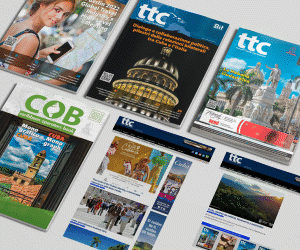by Frank Martin
A concept that experts consider very urgent for the tourism industry worldwide is that it must be very flexible in the face of current and yet unforeseen challenges.
Specialists linked to this sector have found a definition adaptable to the troubled times we live in.
The application of such a concept is seen, in the first place, as urgent for current tourism everywhere and for its various components, from accommodation to transportation, and, ultimately, for any circumstance in the immediate, medium and future future. . even distant.
“COVID-19 has changed the way we think about tourism” is a blanket warning.
Before the pandemic began, the industry was growing rapidly, supporting 10 per cent of jobs worldwide and employing the largest number of women and young people. Then it became even more important at a universal level, leading the global recovery based on its transversal and resilient nature”, considered an expert from the United Nations World Tourism Organization, UNWTO, recently quoted by various specialized publications.
The lack of foresight of any profile is no longer acceptable for an industry like tourism, whose well-being is linked to the weather, trade tensions in general, pandemics and wars, as has been shown in the last three years.
The most damaging events will probably end, but their aftermath will presumably not include the cost of living, inflation, and fluctuating oil prices.
One response that is becoming increasingly necessary is mass tourism that is as free as possible from excessively high prices, experts around the world say.
In times of great prosperity for the sector, UNWTO wasted no time.
Since 2017, it has launched twenty innovation programs related to a tourism practice that tends to be more extensive and massive.
A good example of mass participation occurred in China shortly before the end of the 1970s.
At that time, the great Asian country practically suffered from the non-existence of its international tourist offer, limited by various internal variants.
Forty years later, the entire world enjoyed more than 130 million Chinese traveling abroad in 2019, 4.5% more than in 2018.
As of mid-2019, a global increase of 4% was expected for 2020.
But the impact of Covid-19 limited traveler arrivals to a drop of around 400 million international arrivals, virtually a collapse.
The facts show without a doubt that the tourism industry will have to move forward with two fundamental concepts, flexibility in all variants and finding ways to reduce future destructive surprises through methods and technologies that leave behind the old human habit of trusting just in luck
FM

MORE NEWS











